The clash between the UK and EU over Northern Ireland is a precursor to confrontations that will last decades
Alongside the furore over vaccines, this is the first installment of near-permanent friction

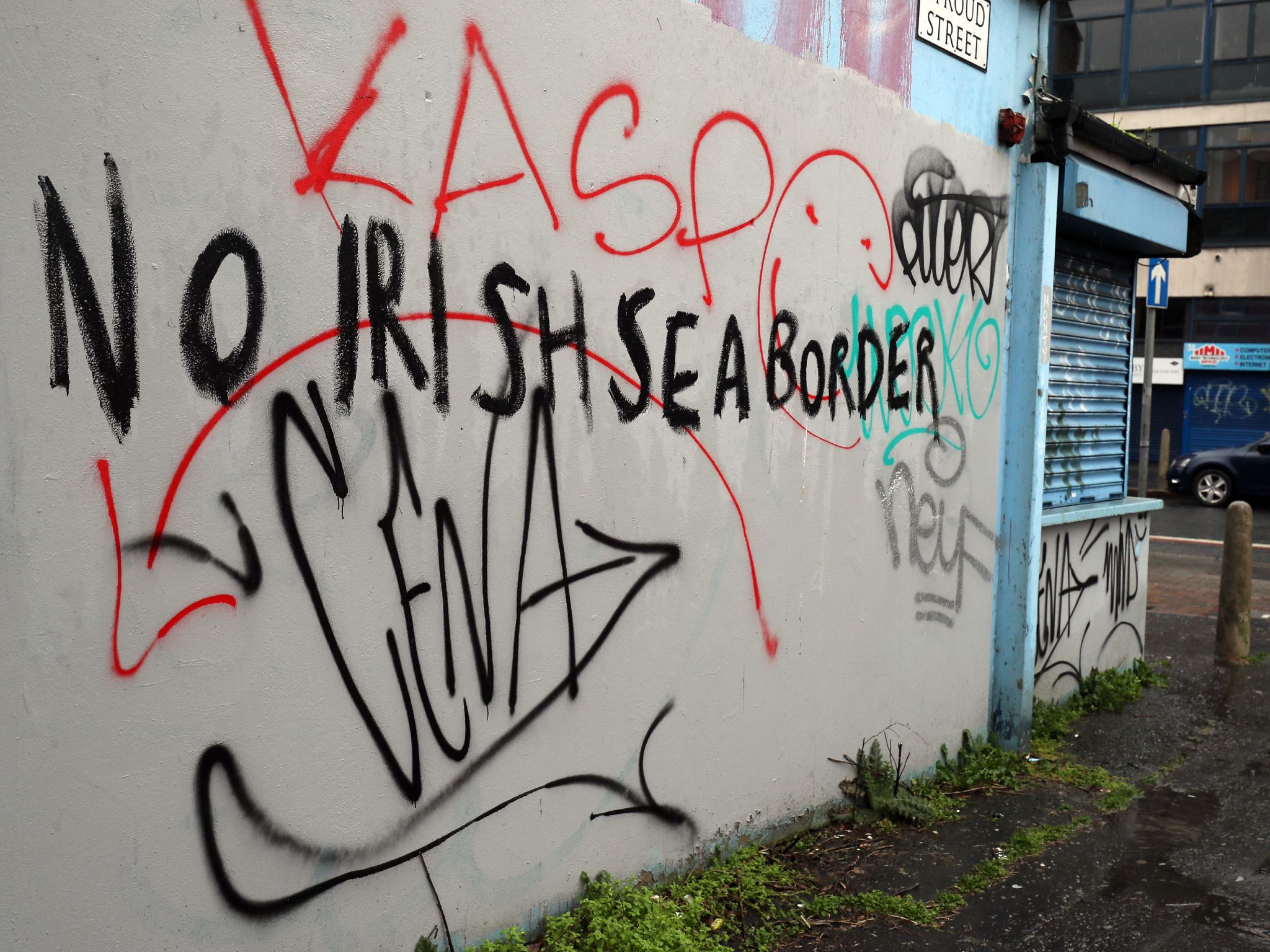
Your support helps us to tell the story
From reproductive rights to climate change to Big Tech, The Independent is on the ground when the story is developing. Whether it's investigating the financials of Elon Musk's pro-Trump PAC or producing our latest documentary, 'The A Word', which shines a light on the American women fighting for reproductive rights, we know how important it is to parse out the facts from the messaging.
At such a critical moment in US history, we need reporters on the ground. Your donation allows us to keep sending journalists to speak to both sides of the story.
The Independent is trusted by Americans across the entire political spectrum. And unlike many other quality news outlets, we choose not to lock Americans out of our reporting and analysis with paywalls. We believe quality journalism should be available to everyone, paid for by those who can afford it.
Your support makes all the difference.Get your retaliation in first,” is a cynical old saying in Northern Irish politics that means you hit your opponent whenever you can without waiting for a provocation. It neatly captures the violent traditions of the province and explains why the political temperature there is always close to boiling over.
Imagine then the pleasure of those unionists who had always opposed the Northern Ireland Protocol, which places the new EU/UK commercial frontier between Northern Ireland and mainland Britain, to find that they had been genuinely provoked by the European Commission. In a classic cock-up, but one with grave and lasting consequences, Brussels had briefly called for a “hard border” between Northern Ireland and the Republic of Ireland, something it had repeatedly told Britain was an anathema because it would endanger the Good Friday Agreement and open the road to communal violence.
Yet here was a glaring example of the EU selfishly backtracking on its own warnings and fecklessly reopening one of the most explosive issues in European politics, the culpable purpose of this being to stop vaccines capable of saving the lives of British pensioners from being exported from the EU to the UK.
The Commission was instantly struck by a hail of abuse for its folly and it promptly withdrew the proposal with embarrassment, but for almost the first time in four years the EU was on the back foot in its relationship with Britain. No wonder Michael Gove was openly gloating as he told the House of Commons that the European Commission’s action had been condemned by everybody from the Archbishop of Canterbury to the former prime minister of Finland. And there was indeed some innocent pleasure to be had in watching somebody as poised and ostensibly competent as the Commission president, Ursula von der Leyen, get quite so much egg on her face.
She had presumably miscalculated or ignored, as have so many politicians before her, the extreme combustibility of Northern Irish politics, or failed to notice how far they had already been inflamed by the creation of an Irish Sea EU/UK commercial border at the start of this year. Such flames are not be easily put out, whatever calming noises may come from Brussels, London and Dublin.
Port officials in Belfast and Larne, who actually conduct the border checks, have stopped working on the grounds that they fear for their safety. A piece of graffiti has appeared on a wall in Larne reading: “All Border Post Staff are Targets.” For weeks, the media had been full of stories about frustrated Northern Irish businesses facing ruin because of the new border checks.
Ever since Boris Johnson openly betrayed the unionists and signed the Irish protocol, they have felt the ground shifting under their feet and, they found to their horror, apparently shifting inexorably towards a united Ireland. They complain that even the British Army was having to fill in EU forms to bring military equipment into the province (it turned out that they were doing so, though they did not have to under the terms of the Protocol). An element of “getting your retaliation in first” surfaces here since, under pressure from those even more hard line than themselves, the Democratic Unionist Party leadership which – along with Sinn Fein – heads the government in Northern Ireland, has switched its stance. Instead of reluctantly enforcing the Irish Protocol, it now opposes it.
One of DUP ministers, Edwin Poots, ordered the withdrawal of the port inspectors, though the police had told him that they did not believe the inspectors were under threat from loyalist paramilitaries. Poots claims the police did not have “a full understanding of the risks” – and in the long term he is probably right.
The bizarreness – and potential dangers – of the permanent crisis in Northern Ireland cannot be over-stated. By leaving the EU, Britain created a new UK/EU frontier the effect of which would be to the benefit of either the unionists/protestants or the nationalists/catholics. A repartitioning of Ireland by resurrecting a physical barrier along the 300-mile-long land border was never feasible, if only because it largely runs through nationalist/catholic majority areas where any new customs posts would be burned or wrecked as soon they were established. Now the unionist/protestant community is extending a similar veto over an “Irish Sea border”.
In other words, the frontier between Britain and the EU is a disputed no-man’s land where two communities struggle ceaselessly for dominance. This is something that will affect – and probably poison – future relations between London and Brussels for decades to come. Brexit automatically destabilised Northern Ireland and now Northern Ireland is going to destabilise Brexit Britain.
But the embattled province will not be the only friction point, only the one with greatest potential for violence. Boris Johnson won the general election of 2019 by claiming that he would “Get Brexit Done”, promising that relations between Britain and the EU would soon achieve a stable equilibrium. But that is precisely what is not happening. Instability is built into the Withdrawal Agreement, and the row over vaccines and the Irish Protocol is only a precursor to decades of friction.
Britain will be permanently in the position of negotiating and renegotiating access to the single market for its goods and services. It will, moreover, be negotiating from a position of weakness and will be continually forced to make concessions – as was so often the case during its negotiations to leave the EU. British fishermen, once the symbol of the benefits to come of enhanced British sovereignty, have become the first visible casualties of this new and unequal balance of power.
Remainers once fantasised about the day when Leavers would see the ruinous errors of their ways in exiting Britain’s largest market and lament their folly. But the exact opposite is likely to happen: the EU will in future fight for its 27 members’ interests with even less regard for the views of the British government and British public opinion than it did before.
A Brexiteer government and pro-Brexit media will inevitably respond by scapegoating Brussels for everything that goes wrong in Britain, accusing it of overbearing behaviour and unfair practices. They may even be right, but this will not do them any good, simply because the EU has the stronger hand of cards.
Just at the moment the government can say – though not too loudly – that the advantages of speedy national action, unobstructed by the restraints imposed by an unwieldy EU alliance, are exemplified by its swift development and rolling out of the coronavirus vaccine, but this type of success is unlikely to be often repeated.
On the contrary, the outlook is that Britain will remain obsessed by its relations with the EU – and that those relations will generate continuous friction. The economic relationship may begin to sort itself out in time, but at the cost of much bad political blood while Brexit turbo-charges Irish and Scottish separatism. The furore in Northern Ireland is not an atypical hangover from the past, but the first instalment of a permanent confrontation between Britain and the EU.
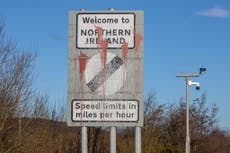
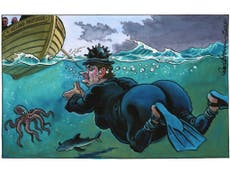
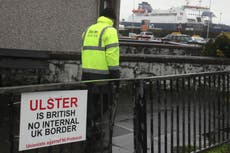

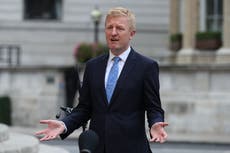
Join our commenting forum
Join thought-provoking conversations, follow other Independent readers and see their replies
Comments